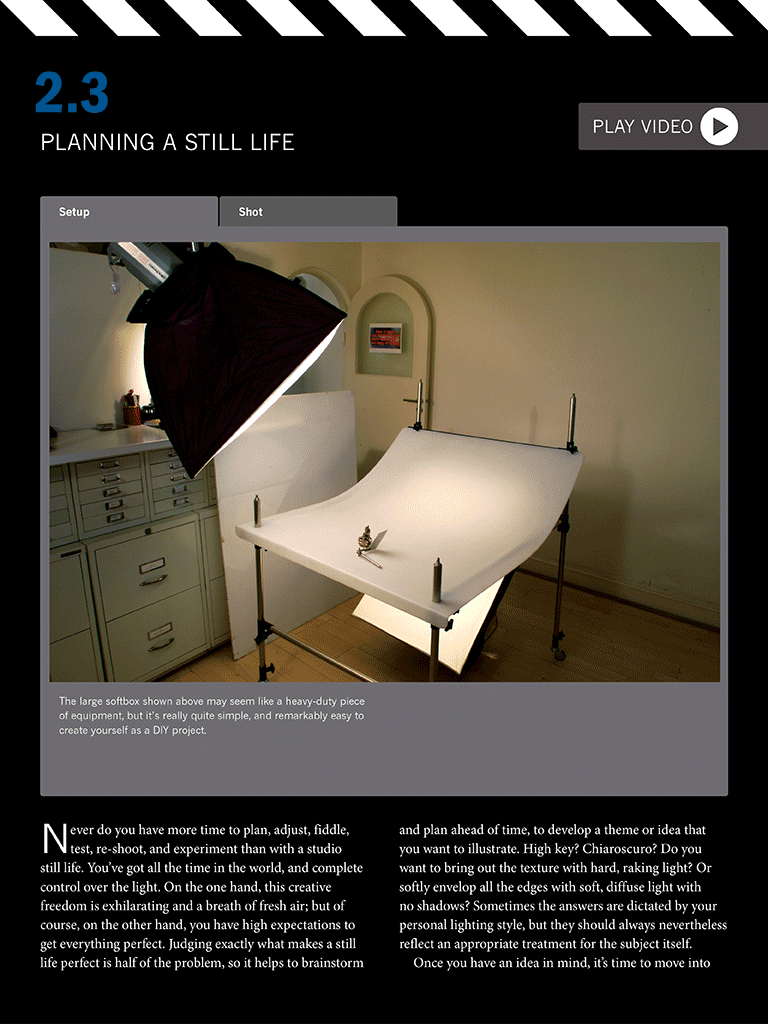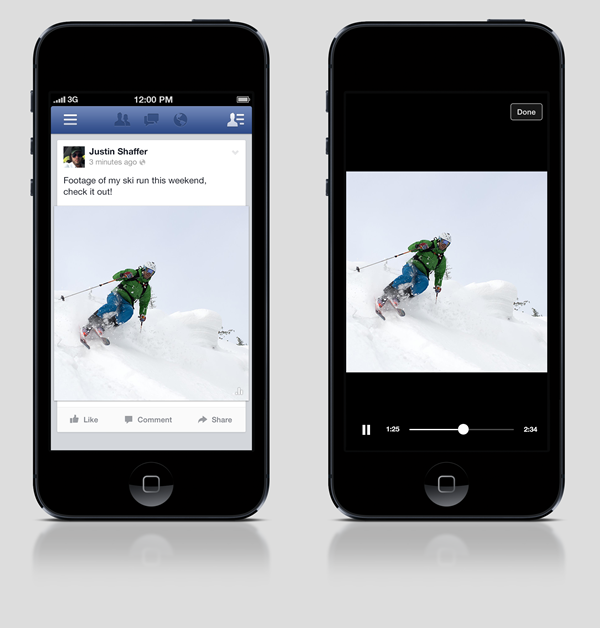Watch a day in the life of Planet Earth compressed into a gorgeous, glorious three-and-a-half minutes.
What do football, copyright, and Vine have in common? A lot of money and a lot of confusion
The English Premier League kicks off tomorrow and in addition to last minute transfer news, shock managerial sackings, and managerial press conferences, copyright and broadcasting rights and the use of tablets inside Old Trafford have made headlines, too. The issue of tablets and laptops inside Old Trafford is fairly self-explanatory: Manchester United has prohibited bringing them inside the grounds owing to security reasons. The copyright issue seems to have people in more of a flap. And heavens, this isn't the first time it's happened. The Premier League has stated that it will be taking action against people who compile and share Vines of goals that they record from live broadcasts of matches. Being able to live-pause broadcasts makes this relatively straightforward technologically, but it's a breach of copyright.
This has thrown up a few interesting questions, not least from the BBC's Technology Correspondent, Rory Cellan-Jones, who wondered if his Google Glass recording of Brentford matches would violate copyright.
https://t.co/TIbfR6kft6 Now worried about my Brentford through Google Glass video - am I in copyright trouble?
— Rory Cellan-Jones (@ruskin147) August 15, 2014
I'm fairly certain it wouldn't violate copyright, but it could well infringe on other rights. So if everyone will be please calm down, and preferably sit down, I'll explain what (I think) the situation is.
Copyright
Copyright is the right to make copies of someone else's creative endeavours. When I click the shutter on my camera, I own the copyright to the image that creates. When BT Sport or Sky Sports record and broadcast a football match, they own the copyright to the broadcast. That is, the producer decides on which cameras to use and how to put together their sequence of use, which constitutes the original work. The football match itself isn't copyrightable, it's the broadcast of it that is.
As well as charging their subscribers a fee to watch the matches, BT Sport or Sky Sports can charge other broadcasters to use these images or they can keep them all theirselves. Their pictures; they decide.
When someone sitting at home on the their sofa and watching a football match compiles a Vine of the goals using pictures transmitted by BT Sport or Sky, they're violating BT Sport's or Sky's copyright. They are taking BT Sport's and Sky's work and using it without permission and without paying for it.
When you read that BT Sport and Sky Sports are complaining about their copyright being violated, this is what they mean.
Broadcast rights
When BT Sport and Sky Sports won the contracts to televise Premier League matches, they paid an excruciating sum of money for broadcast rights, or the opportunity to transmit live pictures from the game. The BBC holds the broadcast rights to highlights of the Premiership matches. They paid a fair whack for that, but not quite as much as BT Sport and Sky Sports. This season The Sun and The Times have the online rights; this is big business and it's this money, paid to the Premier League, which has made it into the financial behemoth that it is.
Turning up at Old Trafford or Stamford Bridge and taking photos or video of a match would get you into a different type of trouble, therefore. If you were to try to stream the match live from your seat, you wouldn't be very popular with a gaggle of corporate lawyers for infringing on broadcast rights. Not to mention you'd likely upset the fans sitting around you if you obstructed their view. Whether or not you can take a camera into a football stadium and take some photos for personal use seems to be open to clubs' interpretation. It's worth checking what it says on the ticket. Some might be happy for you to take a photo to remind yourself of the day; others might want to throw you out for just having a camera.

Broadcast rights and copyright are different beasts, but from the same genus. You'd own the copyright to any images you were fortunate enough to make inside a stadium, because you'd made them. What you wouldn't own are the broadcast rights to let you redistribute them. Not unless you'd paid an eye-wateringly large sum of money for the privilege and you probably don't have enough kidneys for that.
Performers' rights
Back to Rory Cellan-Jones and his tweet asking about copyright violations at Brentford, someone asked if it wouldn't breach performers' rights. No. As far as I can tell, performers' rights don't extend to sporting events, at least not in the UK, so there would be no infringement there.
Tablets
Now we get onto Manchester United's prohibition against tablets and laptops inside Old Trafford, which was announced earlier this week. According to officials there, the decision to ban larger devices, including iPad Minis, was made in response to security concerns. They're worried someone might want to pack a bomb into a device, much like airlines are. The ban doesn't extend to smartphones, provided that their dimensions are no larger than 15 centimetres by 10 centimetres (5.9 inches by 3.9 inches). Seeing as smartphones have not been banned and they're still capable of taking photos, we'll take this one at face value. And quite frankly, if it stops people obscuring others' view with when they're recording with the iPads, so much the better.
In conclusion
Please remember that I'm not a lawyer. I'm a writer who takes a fiendish interest in copyright and I've applied a healthy dose of common sense to its ramefications, together with a bit of research.
If you want to take photos or video at any sporting event, I suggest that you check with the stadium before you turn up with any manner of kit. You don't want to forfeit your ticket or have your gear confiscated. Speaking from experience, just go and enjoy the game. Fiddling about with electronic equipment detracts from the atmosphere and what's happening in front of you - the reason why you're there. But maybe that's for another article.
When it comes to making Vines from what you can see on TV - don't. Protecting intellectual property applies to little guys as much as it does to big guys. If we don't want them stealing our content from social media sites and using it for free, best not to infringe their copyright either.
The Ilex Press brings you the Photographer's Eye video app
Should you be the kind of learner who thrives using video, there's a brand new modular photography course available from the Ilex Press based around Michael Freeman's hugely successful book The Photographer's Eye. The course comprises six masterclasses covering camera and lens, framing and composition, exposure and light, light and colour, locations, and storytelling in pictures, broken down into 36 episodes, for example shooting into the sun, or coverting to black and white, and including over three hours of video and 150 images. As each episode is individually downloadable, you can build a learning experience to suit you and your needs.

The idea is that it's both creative and practical: giving you the resources to create images that are not only technically perfect, but also creative, and visually stimulating. There's a taster video to give you an idea of what's on offer.
The first episode is free and each one costs 69p after that.
It's ready to rock and roll on your iPad right now, and will be coming to Android devices very soon.
Vine knows it when it sees it and chooses to ban porn
Porn: some people love it; some people are digusted by it, but we all know it when we see it, right? It's this 'we know it when we see it' approach that Vine is adopting with its new policy covering sexually explicit content on its social netowrk. Vine reckons that explicit sexual content isn't a 'good fit' for its community so its users will no longer be able to post looping six-and-half second videos of it. Vine doesn't, however, want to be seen as too prudish. Unlike Facebook and its draconian 'no nipples' policy, there's no banishment of bare breasts, and content showing nursing mothers, Femen protestors, and nude models will remain welcome on Vine. In fact, Vine estimates that in excess of 99% of its users won't be directly affected by the policy change. For anyone who violates it, however, the punishment is account suspension until the offending material is removed. Persistent posting of forbidden content will result in permanent account suspension. The changes are laid out in a blog post and a specific sexual content FAQ.
Vine maintains that it doesn't have anything against sexually explicit content, just that it would prefer not to be the source of it. Doubtless the App Store and its policies prefer that it wouldn't be the source of it, too.
Postcards: A Martin Parr video exclusive
Only in England, an exhibition of work by two of Britain's most respected documentary photographers, Tony Ray-Jones and Martin Parr, has been running at London's Media Space since September last year. As the exhibition draws closer to the end of its six month run, Media Space has released some exclusive video footage of Martin Parr exploring a file of Ray-Jones' collected seaside emphemera. It's a sweet insight into the interests of Ray-Jones, and Parr's excitement at unveiling a little more about him.
If you'd like to see Only in England, you've until 16 March to do so. Tickets cost £8, or £5 for concessions and can be booked online. Media Space is a part of the Science Museum.
Only in England will run at the National Media Museum, Bradford, from 28 March to 29 June 2014.
Easy-to-make photo videos with Flipagram
Seeing as half the world and their spouses appear to be producing some variation on 2013 In Review articles, videos, and compilations, I thought I'd go for a variation on the variation of 2013 In Review. I've made a sneak peek Flipagram of some of the photos that will be appearing in my Social Photography book, which is due to be released in spring 2014. It's a prospective retrospective, I suppose.
As for Flipagram, it's a rather nifty app that I discovered when a photographer whom I follow on Instagram compiled her best bits of 2013 into a slick looking video. (Thanks, Natalie Norton!) It allows you to hook up to Instagram to make a digital flipbook of your favourite photos, or if you're not of the Instagram persuasion, to do it from your smartphone's camera roll.

Once you've selected your images you can arrange them in your preferred order, crop them to fit Flipagram's square format, duplicate them for added impact, decide between a 15 second or 30 second video playtime, and choose a soundtrack if you fancy. After that, you hit the button and Flipagram compiles your video for you. Then you can share to Instagram, Facebook, Twitter, Pinterest, or YouTube, or you can email it away. There's no option to embed your videos from the Flipagram site, but if you upload them to YouTube, you can embed from there.
I was impressed by how easy it was to compile a little video and finish it the way that I wanted it finished. At the moment you can't return to edit a saved video, but Flipagram has developments in the pipeline, so that might be one of them. And useful it would be, too.
Flipagram is free, nothing to do with Flipboard, available for Android and iOS, and worth a download for a bit of fun.
Advertisements now part of Facebook's auto-playing video repertoire
When Facebook rolled out auto-playing videos into its users' mobile and desktop news feeds last week, along with a collective groan came the question, 'How long until those videos include adverts?' Five days is the answer. Auto-playing advertisements aren't coming to all Facebook users immediately; it's a test group that is currently receiving them, and the adverts are for Divergent, a film due to be released next year. Given it's a trial run, if the users find it abhorrent enough and say so loudly enough, it's possible that the plans could be shelved. However, Facebook does have to fund itself somehow and this is likely an appealing pitch to marketers.

Much the same as with the auto-playing shared content videos, they'll be soundless until you click on them and you can ignore them by just scolling on by. When you're using a mobile device adverts will still play automatically if you're on a cellular connection but they would have been downloaded the last time that you were connected to wi-fi, which should help to prevent data-gobbling. If you watch a video avert through to the end, two further adverts will appear. This, says Facebook, is to make it 'easy to continue to discover content from the same marketers.' It's the price we pay for something that's 'free'.
(Hedsup to Techcrunch)
Video in and around the sea for around £100 with the Braun Vidi Proof
'Cheap' and 'underwater safe' aren't words that often go together when it comes to cameras. 'Cheap' is of course a relative term, and to what depth you can take a camera under the surface is also variable, but most of the time you're looking at a good few hundred pounds to get your hands on anything that you can drop in the surf. Braun is hoping that its new Vidi Proof Camcorder will allow snorkellers, surfers, and kayakers a reasonably priced option to record their exploits in motion and stills pictures. Primarily it's designed for making video, upto 60 minutes in length, and to a depth of three metres. However, it's capable of capturing stills, too, with a five megapixel CMOS sensor and 4× digital zoom. It runs off of two AA batteries and uses a Micro SD card up to 16GB in capacity.

If you're thinking that Braun is more readily associated with electric razors, depilators, and toothbrushes, that's a different Braun, which is owned by Proctor and Gamble. This Braun is the Braun Photo Technik GmbH, which used to be known as Carl Braun Camera-Werk. This company specialises in digital imaging equipment, from binoculars and graphics tablets to filters and video cameras.
The Vidi Proof will cost in the region of £100 and it should be available soon.
Video comes to photo storage app Loom
I've been a fan of Loom since since I tried out its public beta version earlier this year. It's a photo storage service that allows you to access your images across all of your devices as well as auto-upload them to take some of the strain off of keeping your back-ups secure. It's easy to use and looks good, too. Today they've released their biggest update to date, which will allow users to play and stream videos on their iPhones, iPads, and from the website. The process that their developers have implemented lets users watch their videos almost automatically without any of that pesky buffering. As soon as you press 'play' it starts to stream the lowest quality version of the recording while simultaneously buffering the higher quality one and switching to that as soon as your Internet cnnection and screen resolution lets you. Yes, it's similar to the system that Netflix uses.
They've made a pretty video to show it off, too:
Loom already gives you 5GB of storage for free; 50GB costs $39.99 for a year, or $99.99 buys 250GB of storage for a year. However, if you refer your family and friends to Loom you can pick up an extra 5GB for free.
Yes, Loom is only iOS-only at the moment, but Android expansion is planned. Let's hope that's Loom's next major update and it comes along quickly!
Auto-playing videos come to Facebook
Oh joy! Facebook has embarked on a steady roll-out programme to bring auto-playing videos to all of its users. It started with Android devices, progressed to iPhones, and now the team at TechCrunch has noted that it has made it to desktop. Let us, however, be thankful for small mercies: these self-playing videos will remain silent until you click on them to enable the volume. At least you won't suffer the indignity of perfect strangers knowing that you're checking Facebook in a public loo, or being shown up at work as not concentrating on that deeply thrilling spreadsheet as much as your colleagues believed you were. It's only videos that have been uploaded directly Facebook or shared from Instagram that will play automatically; anything else sits in suspended animation. Do then, be kind to your Facebook friends and link video from YouTube, Vimeo, or elsewhere. Of course, this move fits in with Facebook's need to make make money. Next stop: auto-playing video advertisements.

There's no way that you can disable video auto-play entirely. However, if you need to watch your data download limits on your mobile network, you can ensure that videos will only auto-play when you're connected via wi-fi. For iPhone users it's Settings > Facebook > Settings > Auto-play videos on WiFi only. Not that this is much consolation for people living where wi-fi bundles aren't cheap and data limits are tight.






